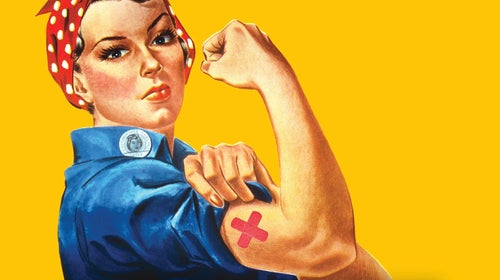In the summer of 2021, Kim Miller found himself in a familiar position: considering the best move to shepherd his team through a life-threatening storm. In his previous life as an expedition leader, he’d shouldered that very burden on plenty of high peaks. As the CEO of Scarpa North America, he now faced a different deadly threat: COVID-19. “My mentality as a leader is to keep people safe,” Miller said. “And motivated, engaged, and happy at a time when people are freaking out.”
So, the Boulder, Colorado-based subsidiary of the global alpine footwear brand implemented a new policy: barring a religious or health-related exemption for which the company would make reasonable accommodation, all employees were required to get vaccinated against COVID-19. At the time, a handful of the 25 employees had not yet gotten their shots, but Miller says there was no pushback. By July, all had gotten the jab save one staffer with an approved health reason. Scarpa then qualified for Boulder County’s vaccine certification, which provides exemption from the county’s indoor mask mandate for companies with a 95 percent vaccination rate. “We take it seriously,” Miller said. “Nobody comes in our building who’s not vaccinated. We ask for proof from the office maintenance staff and the FedEx carrier.”
Vaccine mandates are, of course, controversial at the national level right now. The Biden administration’s requirements for federal employees, government contractors, health care workers, and private companies with 100 or more employees have stirred contentious debates about government overreach, not to mention ongoing litigation that thwarts cohesive implementation. Some companies, including Denver-based outdoor industry behemoth VF Corporation (parent company to The North Face, Smartwool, and Timberland, among others) have taken matters into their own hands by issuing their own companywide vaccine policies.
Smaller brands have followed suit, like Scarpa and the Longmont, Colorado-based Deuter USA. Deuter introduced vaccine-or-test requirements in August 2021 for two reasons. First, to protect staff with vulnerable family members and small children, says managing director Jonathan Degenhardt: “We wanted to make sure our team didn’t feel like their jobs were putting their families at risk.” Second, operations and profitability were subject to a devastating domino effect: “Logistics, sales, accounting, and marketing are all under one roof,” he says. “Because of our size, we have to be 100 percent functional. If any of us go down for an extended time, that affects our productivity. If we’re not shipping, we’re not invoicing.” By October, despite slight initial resistance from a handful of people, all employees had rolled up their sleeves.
While smaller staff sizes help considerably in smooth execution, both Degenhardt and Miller recognize that “bedside manner” boosted their success in employee reaction and retention. “If I’d just walked in and said, ‘Everyone’s getting vaccinated or you’re outta here’—that’s the wrong tone,” said Miller, who carefully solicited input from team managers, consulted with Scarpa’s attorneys to avoid infringing on anyone’s legal rights, and privately communicated with each employee to understand concerns.
Similarly, at Deuter, employees were given paid time off for recovery and an understanding ear, no matter the reason for any initial hesitation. “I have not seen any issues with morale because we are trying to be sensitive to how each employee feels,” said Deuter controller April Sawyer, whose cousin died from COVID in February 2021. “Our HR and management staff have had personal conversations with each employee, and I feel the employees have been very up-front about their feelings.”
While the mandate concept is still somewhat of an experiment in social science, the health outcome, at least for Deuter and Scarpa, has proved reassuring: despite the persistent risk, neither company has seen any outbreaks as of press time. And while the idea of a vaccine requirement is “sprinkled with subjective influences, like politics,” Miller said, “we are neutral on that. I always go back to: this is what the science says.” Bottom line? “I feel really good in a really bad situation,” Miller said, “about what we’ve done, how we’ve learned from what we’ve done, and how we’re faring.”


